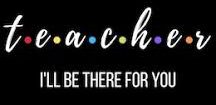“Tinkering is a mindset, a playful way to approach and solve problems through direct experience, iteration, experimentation and discovery” (Stager & Martinez 2013 p. 36). While a growth mindset is the type of mindset when intelligence can be developed when students embrace challenges, persevere through tough assignments, and take criticism constructively (Fixed vs. Growth). Tinkering and growth mindset both allow for students to learn from their mistakes and try something different the next time. The most important word for growth mindset is “yet” if a child says, I can’t do this, I say … yet. The students need to understand that if they put their minds to it they can achieve anything. That is the growth mindset model.

Meaningful play is where children learn how to problem solve and complete important social tasks through play. Many schools do not have time for play, which is a major problem in schools. As Maria Montessori says, “Play is the work of the child” and Piaget similarly says, “ Play is a child’s work” (Stager & Martinez 2013 p. 41). Play is important for the child’s social and cognitive development and it has been taken away in school and replaced with teachers “teaching” all day with no time for children to explore because of the mandated standards.
All of these are linked in the idea that tinkering is doing something that you aren’t exactly sure how to do and you preserve through it with a growth mindset. Play allows for children to practice what they are learning, as stated by Stager and Martinez in Invent to Learn.
References:
Martinez, S. L., & Stager, G. (2019). Invent to learn: making, tinkering, and engineering in the classroom. Torrance, CA: Constructing Modern Knowledge Press.

I love your example of encouraging students to add “yet” to their statements, Diana! I find so many students can adopt a fixed, defeatist mindset with certain assignments and subject areas. I’m guilty of it too! I always struggled in science classes in K-12, particularly biology — it was so hard to wrap my mind around a hard subject with such dense vocabulary. Whenever I’d have difficulty, I remember thinking “I just can’t do this” or “my brain doesn’t work this way.” Adding “yet” on the end of those statements totally transforms them and leads to a more healthy, growth-oriented mindset.
I think the ways we talk about ourselves and think about ourselves have a huge impact. Reframing our mindsets to be more positive, even if we don’t believe it the first few times, can ripple toward much deeper change over time!
Diana,
You bring up some great points about the growth mindset and how it is so closely related to playing and tinkering. It is very true that we lack the time to allow students to play in today’s school systems. It is really sad in a way because we are depriving them of their ability to learn through a growth mindset by feeding into the fixed mindset with standards and grades and such. From our discussions and readings so far, it is starting to seem as though those opportunities to learn through playing and tinkering would likely have a great impact on our students.
Thanks for sharing,
Cassie Ingalls-Kowalcyk